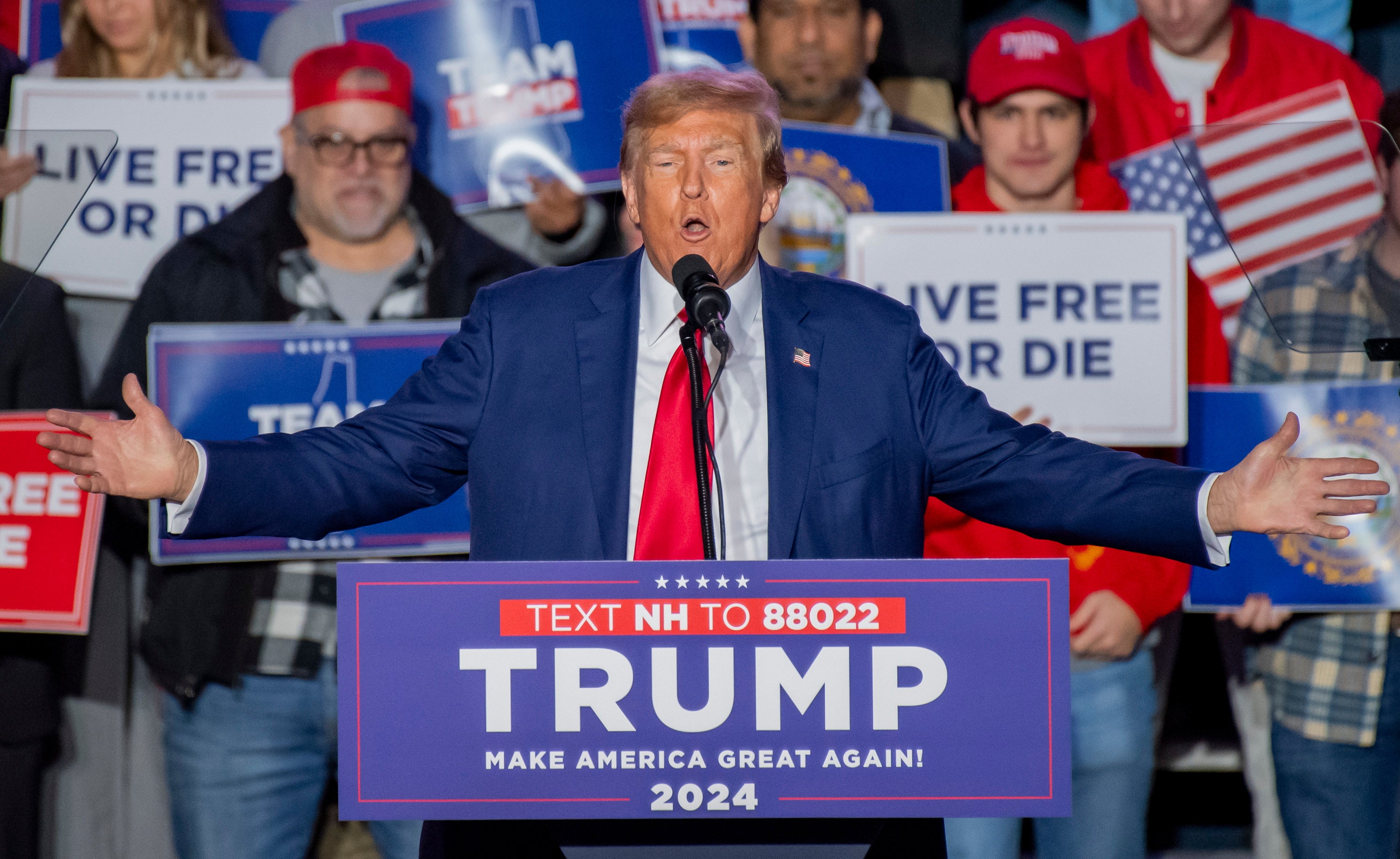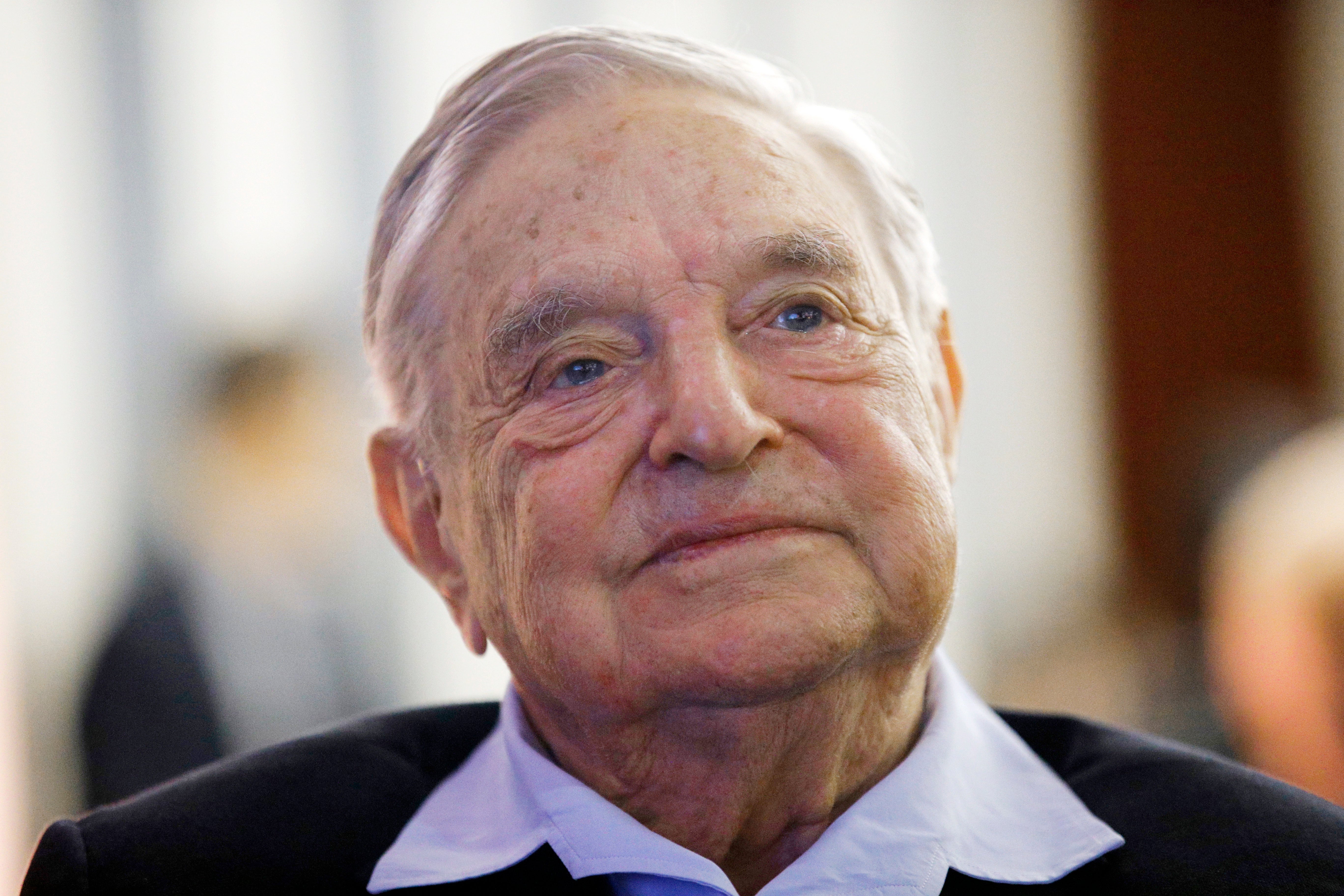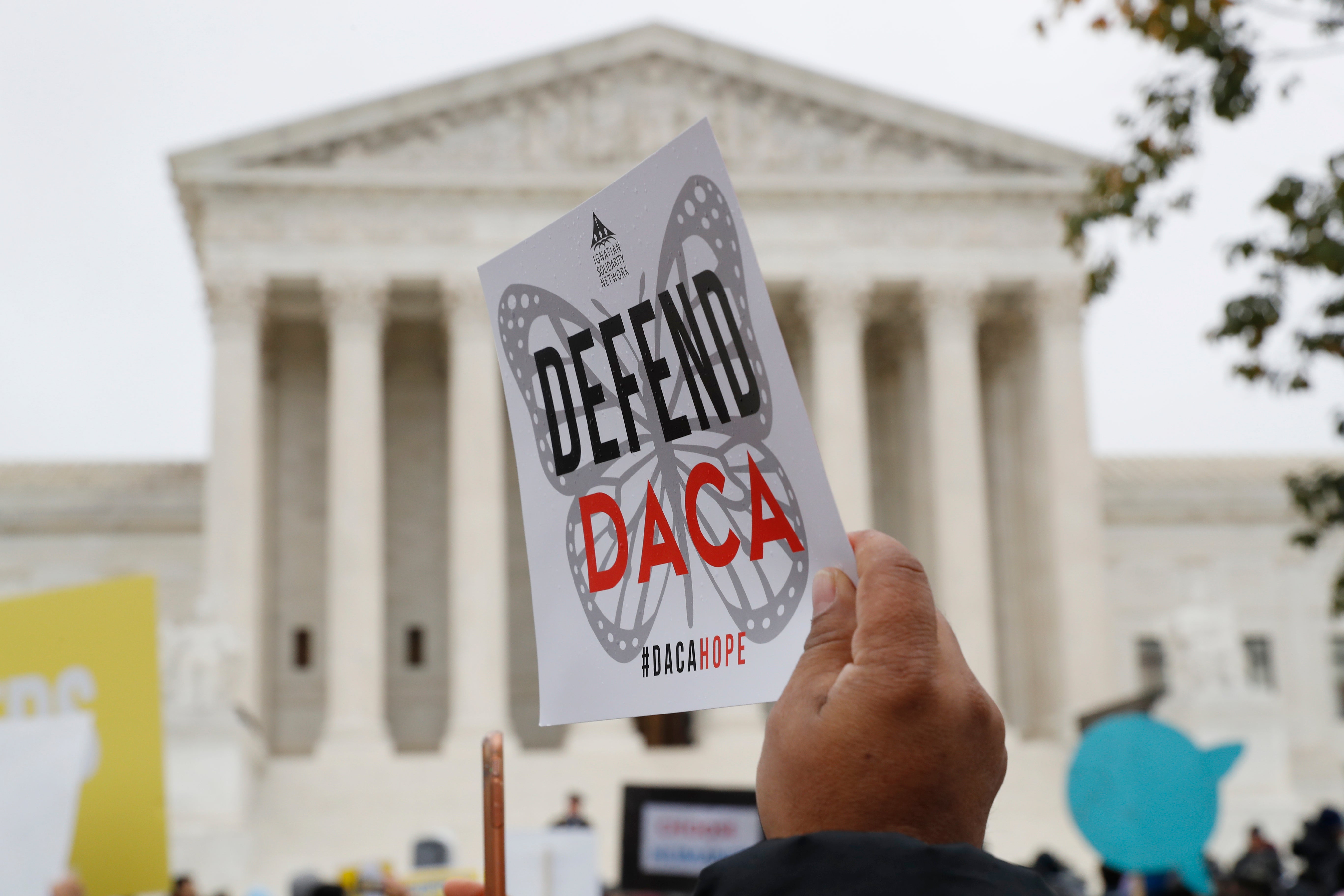We need to talk about Trump’s antisemitism
A national conversation about antisemitism on the left is underway, but we should not ignore the Republican frontrunner’s own history of stoking hatred against Jewish people


Your support helps us to tell the story
From reproductive rights to climate change to Big Tech, The Independent is on the ground when the story is developing. Whether it's investigating the financials of Elon Musk's pro-Trump PAC or producing our latest documentary, 'The A Word', which shines a light on the American women fighting for reproductive rights, we know how important it is to parse out the facts from the messaging.
At such a critical moment in US history, we need reporters on the ground. Your donation allows us to keep sending journalists to speak to both sides of the story.
The Independent is trusted by Americans across the entire political spectrum. And unlike many other quality news outlets, we choose not to lock Americans out of our reporting and analysis with paywalls. We believe quality journalism should be available to everyone, paid for by those who can afford it.
Your support makes all the difference.It’s been a busy and bizarre Christmas season for the former president and Republican frontrunner, Donald Trump. His civil fraud trial, in which he was accused of misstating the value of his properties for tax purposes, finally ended with Trump (who has repeatedly attacked the judge in the case) abruptly deciding not to testify in his own defence. Then, in a rally on Sunday in Reno, Nevada, Trump boasted about having been indicted more times than “the great Alphonse Capone, Al Capone, great, great head of the mafia.” Trump rambled on, “He had a scar that went from here to here, and he didn’t mind at all. But he was a rough guy.”
Trump’s stream-of-consciousness clownishness can make it hard to take him seriously, even at this point in his political career. But he also this weekend reminded marginalised people, including Jews like me, why he’s one of the most frightening figures in American public life.
In a speech in New Hampshire, the former president said immigrants are “poisoning the blood of the country.” He went
on: “They poison mental institutions and prisons all over the world. Not just in South America. Not just the three or four countries we think about. But all over the world, they’re coming into our country, from Africa, from Asia.”
The Biden White House said this rhetoric echoed “the grotesque rhetoric of fascists and violent white supremacists” and “parroted Adolf Hitler.” Many others echoed these concerns; scholar Ruth Ben-Ghiat, for example, linked Trump’s comments to Nazi concerns about “blood pollution” and Italian fascist fears of immigrants ruining white civilization.

Trump is most directly attacking immigrants and non-white people. He extrapolates freely from worries about South Americans crossing the Southern border to attacks on Asian people and African people, all of whom are tarred as a threat to pure (white) America.
The echoes of Nazi rhetoric here, though, also inevitably implicate Jewish people, white and otherwise. For Hitler, Jewish people were always immigrant outsiders corrupting Aryan society. The vicious Nazi propaganda film The Eternal Jew juxtaposed discussions of Jews with images of rats onboard ships, bringing contagion from port to port.
The invidious conflation of Jewish people and immigrants isn’t just in the past, either. The Great Replacement Theory is a conspiracy theory which argues that support for immigration is designed to undermine white power and white culture. Many versions of this argument are explicitly antisemitic, blaming Jewish “elites” for pushing for policies that increase immigration.
In 2018, Trump winked at an antisemitic version of this theory, saying he “wouldn’t be surprised” if Holocaust survivor and billionaire Democratic donor George Soros was responsible for funding immigrant caravans to the US.
The accusations against Soros were baseless but popular; he’s a favourite target of the far right here and abroad, who use him as a (barely concealed) antisemitic dog-whistle. And that dog-whistle can have horrific effects. That shooter who killed eleven people at Tree of Life synagogue was directly inspired by antisemitic Great Replacement conspiracy theories. He targeted the Pittsburgh synagogue because it partnered with HIAS, a Jewish nonprofit that helped resettle immigrants. “HIAS likes to bring invaders that kill our people,” the shooter wrote on the far right social media site Gab. “I can’t sit by and watch my people get slaughtered.” He then went off and committed mass murder.
The Hamas attack on Israeli civilians on October 7, and Israel’s subsequent and escalating retaliation against civilians in Gaza, has led to a bitter and painful conversation about antisemitism in the US. Much of this conversation has focused on antisemitism on the left, and particularly on college campuses, where students, faculty, pundits, and politicians have argued about how and when criticism of Israel’s policies is linked to or inflected by antisemitism.

Some of these conversations are in good faith; others are less so. But they’ve tended to push Donald Trump out of the news. They’ve also drowned out discussions of his own ugly history of antisemitism.
Along with his horrifying flirtation with the Great Replacement Theory, Trump’s antisemitic history includes accusing Jewish people of “disloyalty” to Israel when they don’t vote for him, resurfacing antisemitic dual-loyalty tropes. It also arguably him praising Hezbollah as “smart” for shooting rockets at Israel following the October 7 Hamas attack.
One of Trump’s standard anti-Jewish talking points is seasonal; every Christmas he claims that saying “Happy Holidays” is part of a plot against Christians and Christmas. Trump again this year has insisted that during his presidency he “brought back ‘Merry Christmas’” as a holiday greeting.
The media generally treats this bizarre assertion as a kind of joke, and it is ridiculous. But it’s also an argument that public life in the US is rightfully and solely Christian, and that acknowledging other religions and other traditions is a threat to Christian purity and righteous dominance.
Trump sees the existence of Jews, Hindus, Muslims, atheists, and other religious traditions in public life as a threat and a wrong, just as he sees the existence of immigrants in public life as a threat and a wrong. Sometimes he expresses that comically; sometimes he expresses it a good deal less comically. Sometimes he captures headlines; sometimes other things push him from the spotlight. But Jewish people, immigrants, women, queer people, Black people, and all marginalized people shouldn’t forget who he is and what he stands for.
Trump isn’t Al Capone and he didn’t save Christmas. But his embrace of fascist tropes and rhetoric isn’t an accident. He wants to hurt the same people the fascists wanted to hurt. And if he’s elected president again, he will.
Join our commenting forum
Join thought-provoking conversations, follow other Independent readers and see their replies
Comments